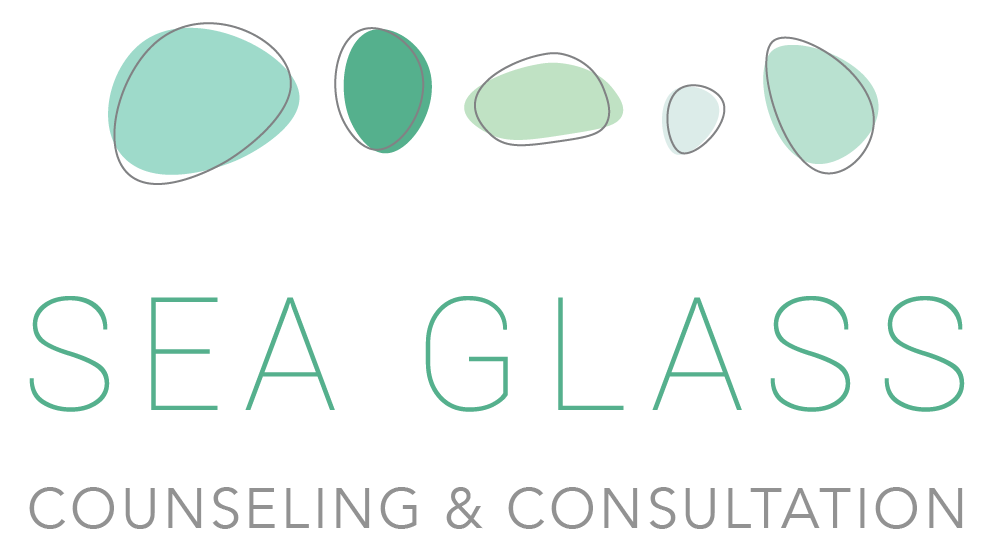Myths That Keep People From Healing
4 Damaging phrases to stop saying about suffering
In the realm of mental health and healing from trauma, there are several common phrases that are frequently used but often do more harm than good. These well-intentioned clichés may sound comforting at first glance, but they oversimplify the complex process of healing and can invalidate the experiences of individuals struggling with trauma and PTSD. Let's take a look at some inaccurate phrases:
1. "Time heals all wounds."
The idea that time alone can heal emotional and psychological wounds is a popular but misguided belief. While time can bring about some degree of natural healing for some things, time alone doesn’t heal all wounds, and trauma doesn’t have a time limit. Experiences that happened years ago can still affect you today, sometimes in surprising ways. Time by itself does not guarantee complete recovery from trauma or PTSD.
People seem to think healing from trauma is akin to digesting a meal. You eat some food, wait a bit of time, and allow your body to take over the work of absorbing nutrients, digesting the meal, and getting rid of the excess. Most people don’t have to think much about their digestion. Healing from trauma is not a passive process that your body does for you. It’s a very active, intentional process that often requires professional support and targeted interventions such as EMDR therapy, support groups, using healthy coping skills, setting boundaries, using healthy and assertive communication, building emotional intelligence, and being present in your body. Ignoring the need for professional help and assuming that time will magically erase the effects of trauma can delay healing and perpetuate suffering. One of the things I hear most often when doing EMDR with clients is that they wish they would’ve started this process years ago. I wish so too! There are lots of treatments that can prevent PTSD from developing and bring significant healing and relief from symptoms.
2. "Everything happens for a reason."
This phrase is often used in an attempt to find meaning or justification in the face of adversity. However, attributing traumatic experiences to a higher purpose or divine plan can be invalidating and dismissive of very real pain and suffering. It’s spiritual bypassing – to avoid dealing with emotional wounds and the unsettling reality that senseless and unjust things do happen. I’m going to be honest, as a trauma therapist I’ve heard some pretty horrific experiences. And for some of them, there’s absolutely no reason those ever should’ve happened.
It can also place undue pressure on survivors to find a silver lining in their trauma. Encouraging individuals to make meaning out of their trauma – especially too early on in their healing process – can undermine the complexity of their experiences and overlook the importance of processing their emotions in a healthy and authentic way. Making meaning is often one of the very last parts of healing from trauma and shouldn’t be rushed or forced upon someone.
3. "What doesn’t kill you makes you stronger."
What doesn’t kill you may give you hypervigilance, flashbacks, nightmares, poor coping skills, difficulty connecting with people, mistrust in yourself, damaged relationships, trouble enjoying things you used to, codependency, panic attacks, substance abuse problems, disordered eating, intimacy problems… and the list goes on.
While resilience can certainly emerge from adversity, it is dangerous to glorify trauma or suffering as a necessary or beneficial experience. Trauma chemically changes our brains, and PTSD can have devastating effects on an individual's mental health and wellbeing. The idea that enduring trauma will automatically result in increased strength overlooks the very real pain and vulnerability that survivors face, and often long and upward battle of healing. This phrase minimizes the severity of trauma’s impact and can pressure individuals to suppress their emotions and put on a facade of strength, ultimately hindering their healing process.
4. “Other people have it worse.”
There’s some truth to this one – yes, there is often someone who has worse circumstances than you. But this phrase is often used to minimize your own emotional pain. It tries to tell you that your pain isn’t valid, isn’t worth experiencing, isn’t worth honoring. That you’re weak or ridiculous for having the emotional response or thoughts that you do. That’s the part that isn’t true.
Other people may have different painful circumstances that may be objectively worse in some way, but that doesn’t negate your subjective experiences and emotions. As far as our brains are concerned, the external stimulus causing the trauma doesn’t matter too much – our brains and bodies respond the same way no matter what’s happening. Children who’ve heard domestic violence in their home (not even witnessing it) have the same brain imaging showing PTSD symptoms as soldiers returning from war. No matter what the external thing is that’s causing trauma, brains and bodies respond the same way. We really cannot judge ourselves for having an emotional reaction to our own experiences, just because someone else has another type of negative experience.
Is crucial to be mindful of the things we say to friends or family (or ourselves!) who are suffering. Instead of relying on clichés and platitudes, it is important to offer genuine support, empathy, and validation to those who are struggling with the aftermath of traumatic experiences. Healing from trauma is a complex and individualized journey that requires patience, understanding, and a commitment to prioritizing mental health and whole-person wellbeing.
Sea Glass Counseling and Consultation is an EMDR therapy practice in Dublin, Ohio. Our compassionate, skilled therapists use evidence-based techniques grounded in the neurobiology of stress, trauma, and relationships to make sure your treatment is personalized and effective. Sea Glass therapists provide telehealth counseling in Ohio for individuals and couples. We’re best known for providing Intensive EMDR therapy, anxiety treatment, and sex therapy for Christians. Interested in working together? Contact us today to get started with an EMDR or couples therapist in Ohio.

